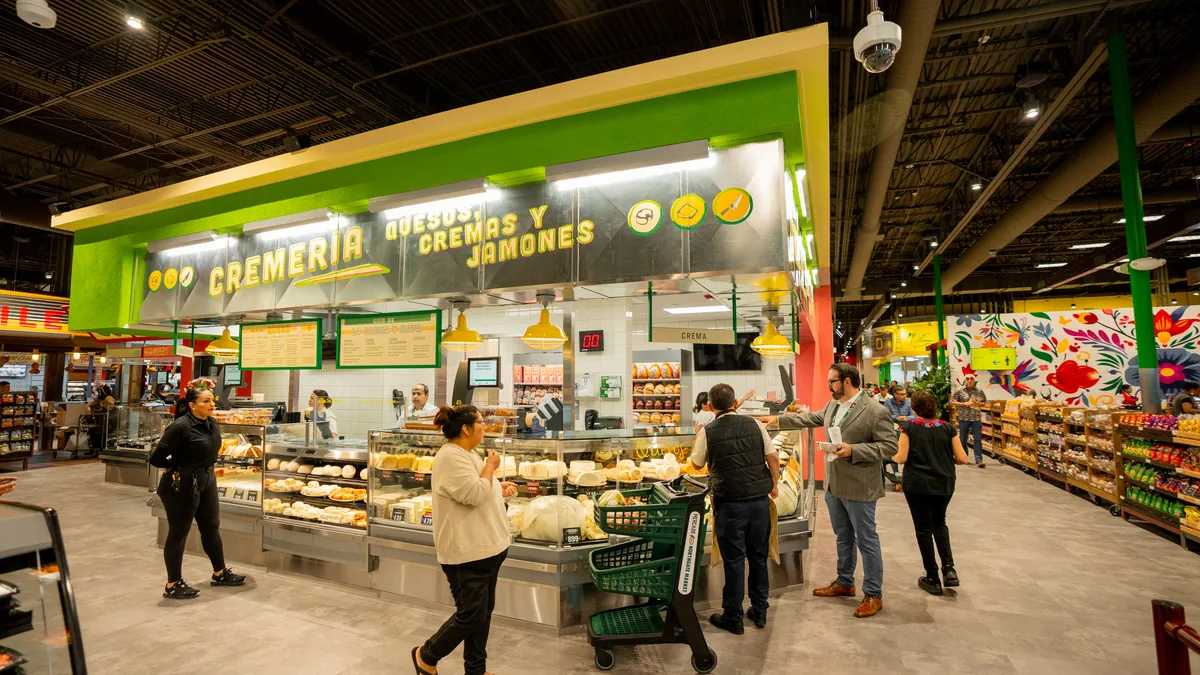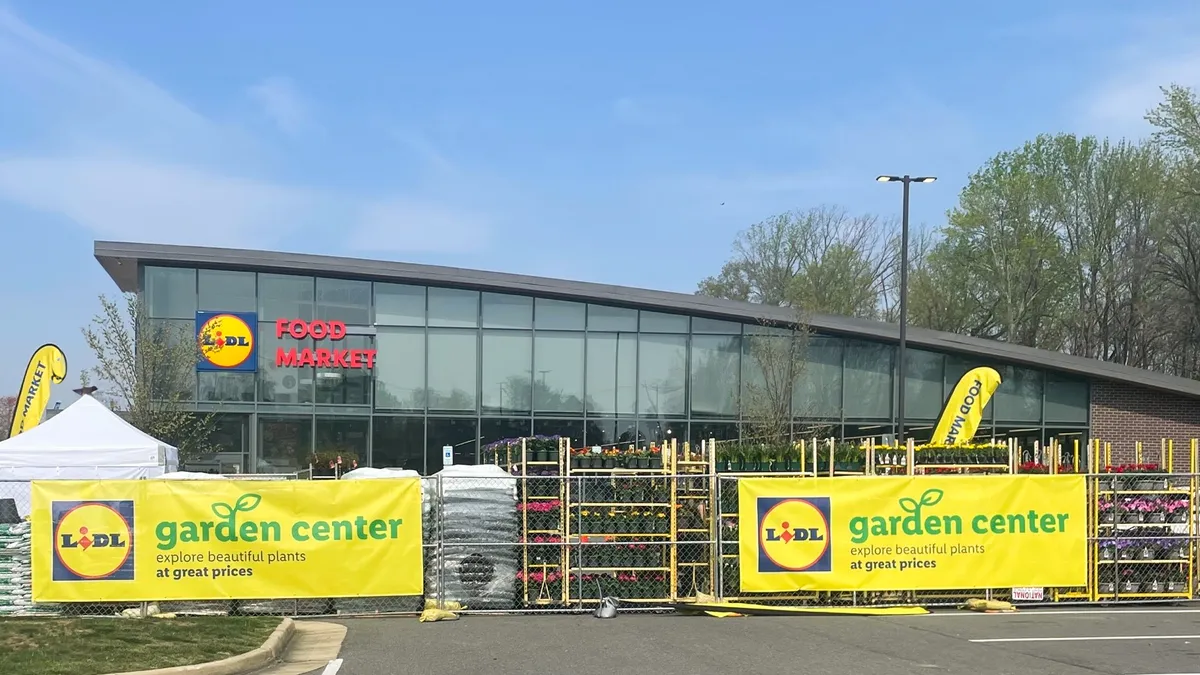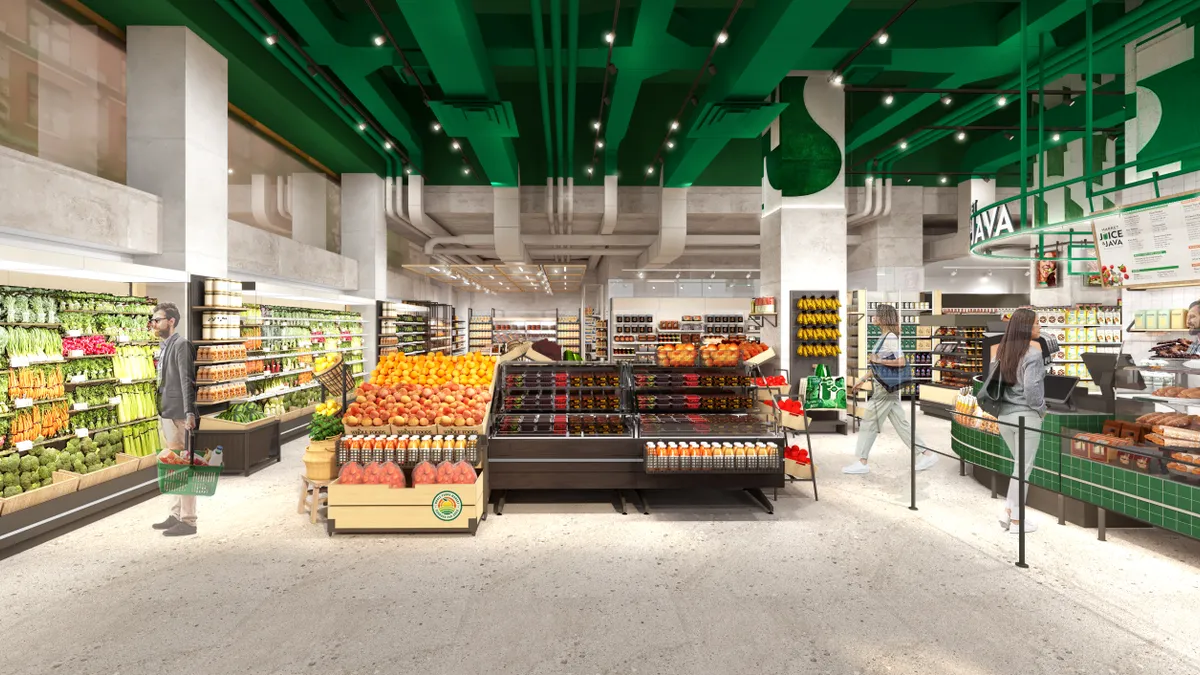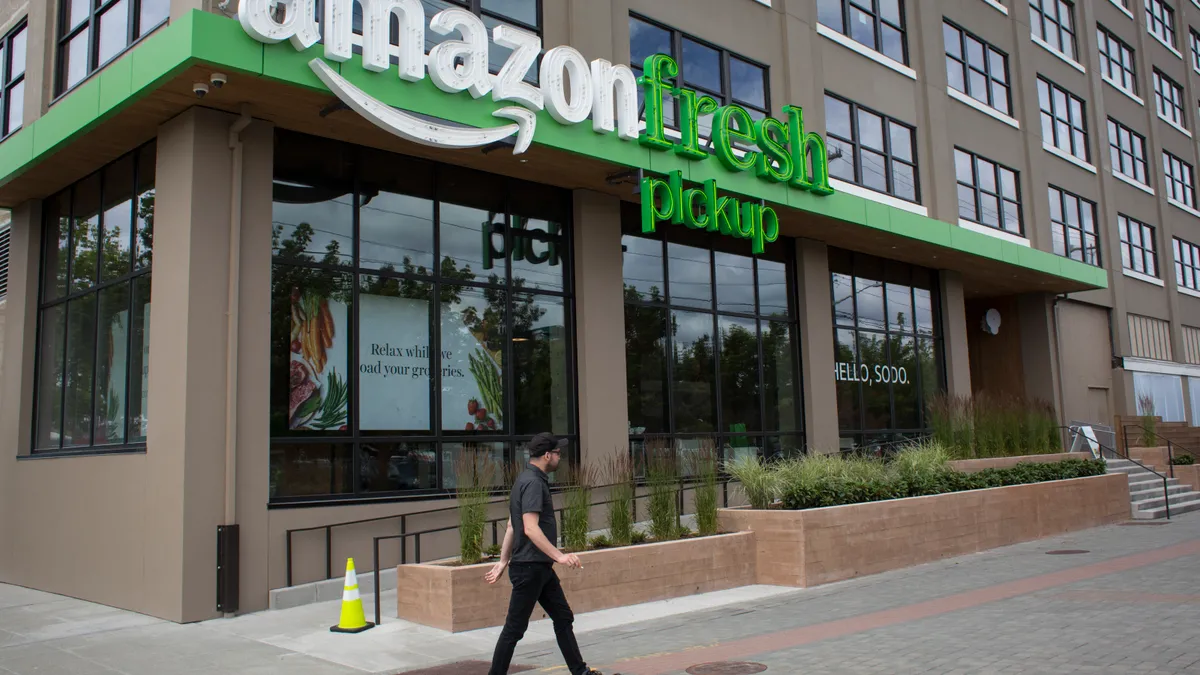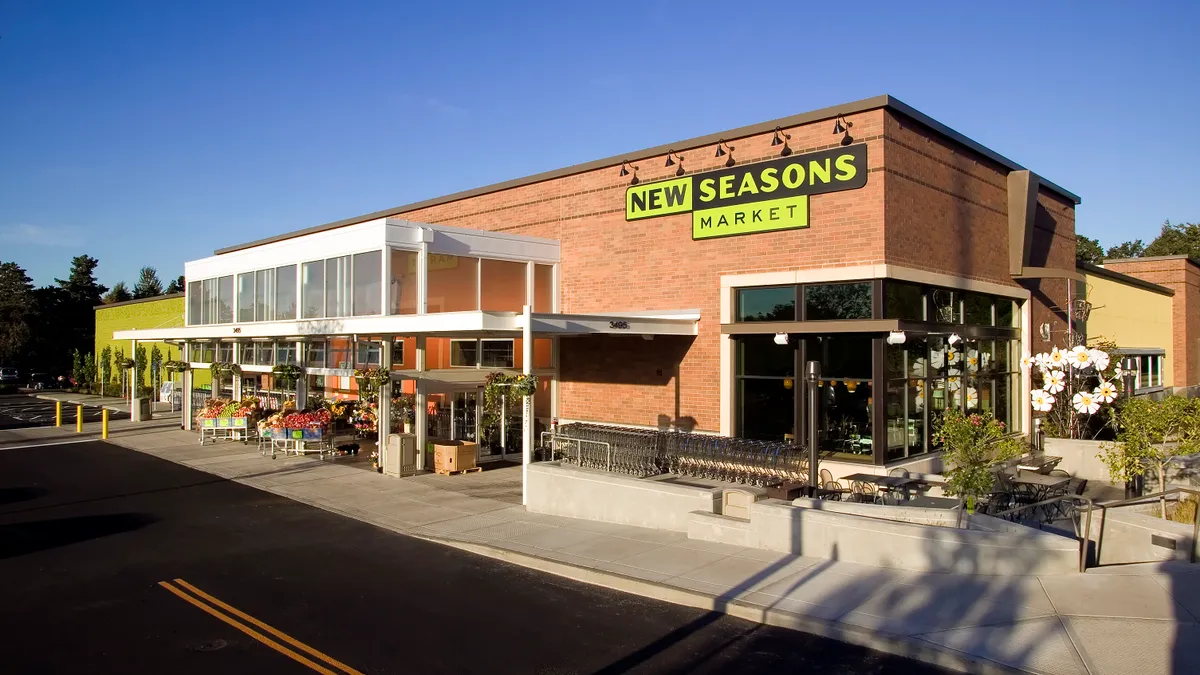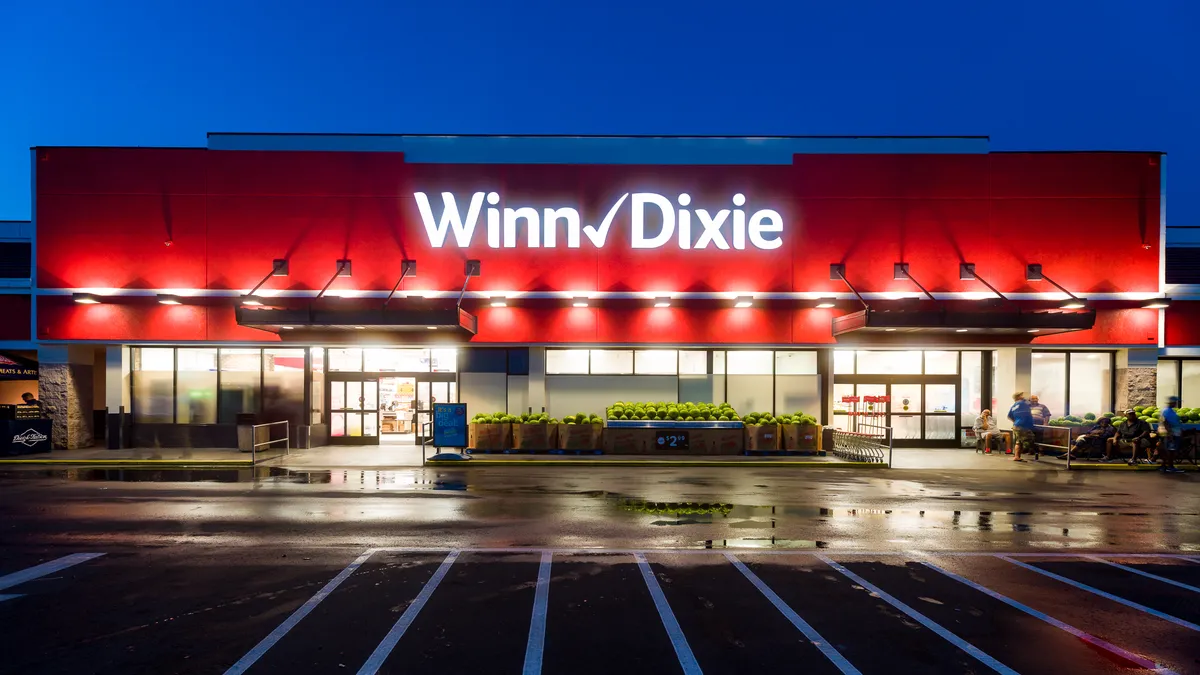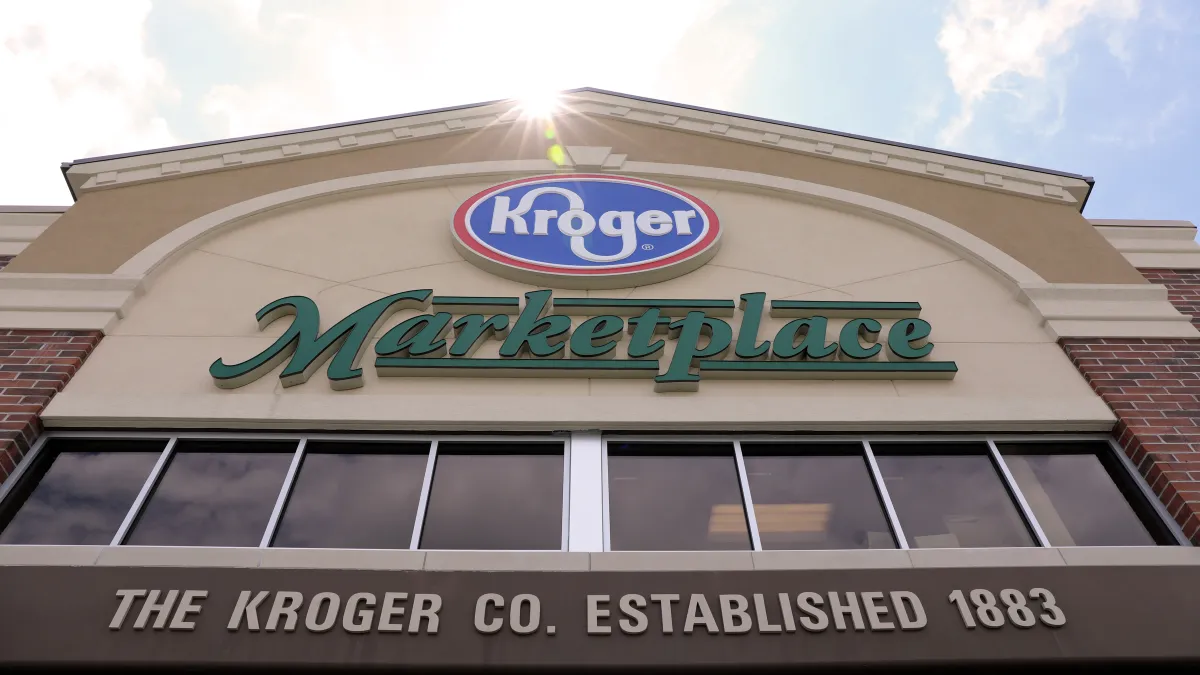A newly opened store in Costa Mesa, California, aims to flip the traditional grocery shopping experience on its head by immersing consumers in Mexican culture and cuisine.
Mercado González, which opened earlier this month, is a new concept from Northgate González Market that offers up authentic cuisine in food stalls and a Mexican fine-dining restaurant. The store also serves as a celebration of Mexican culture with its vivid and colorful design elements.
Architect Kevin Kelley, whose firm Shook Kelley designed the location, called the recently opened location a “game changer” for the grocery industry.
“The Hispanic/Latin/Mexican market has been underrepresented in terms of grocery stores ... They have never really had the limelight. They have never been celebrated in a big way. They have never really been viewed for the culinary adventure they bring people on,” Kelley said.
Mercado González is aiming to change that with a store that offers “the sights, scents, sounds, and tastes of Mexico,” according to its website.
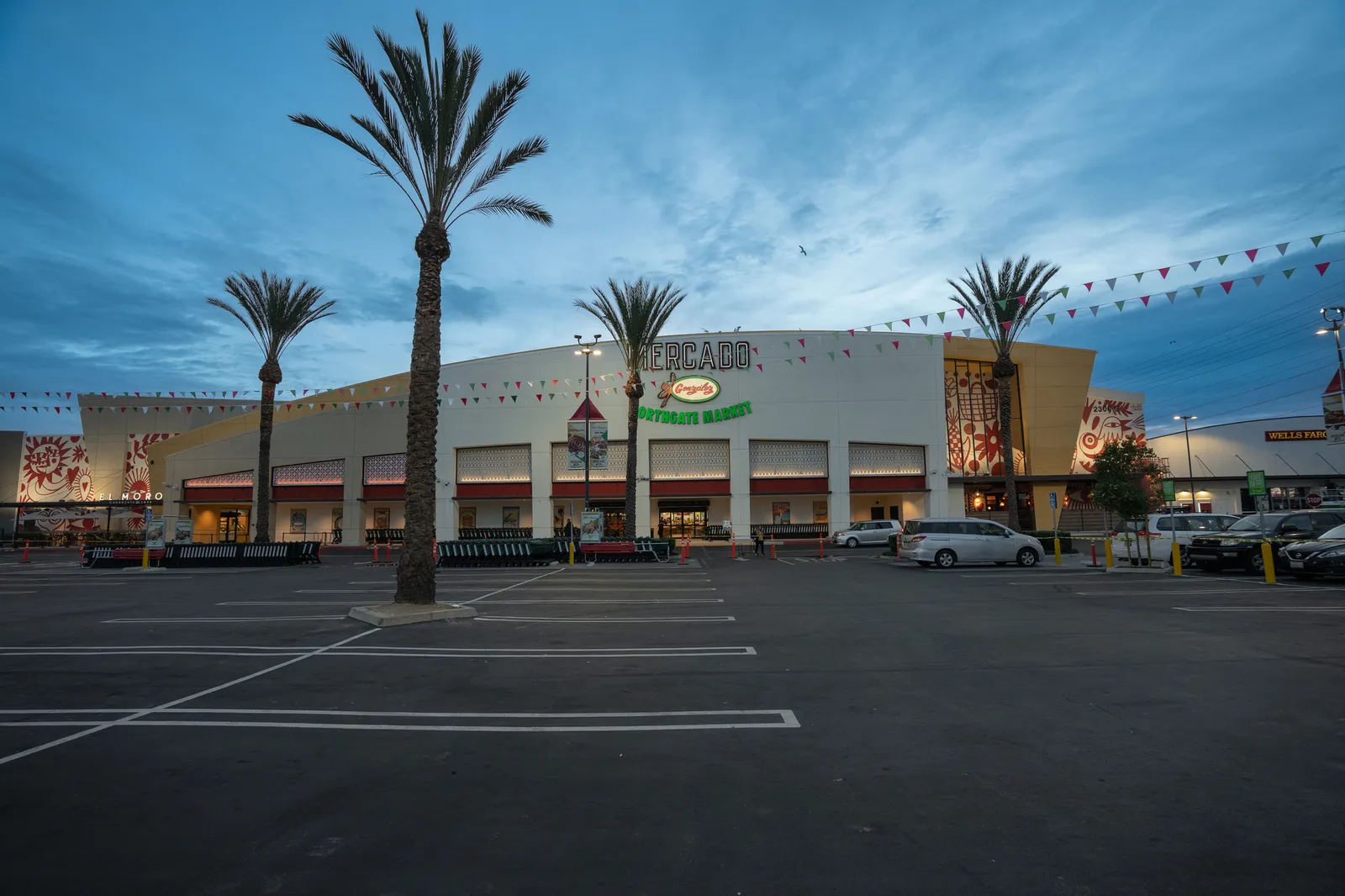
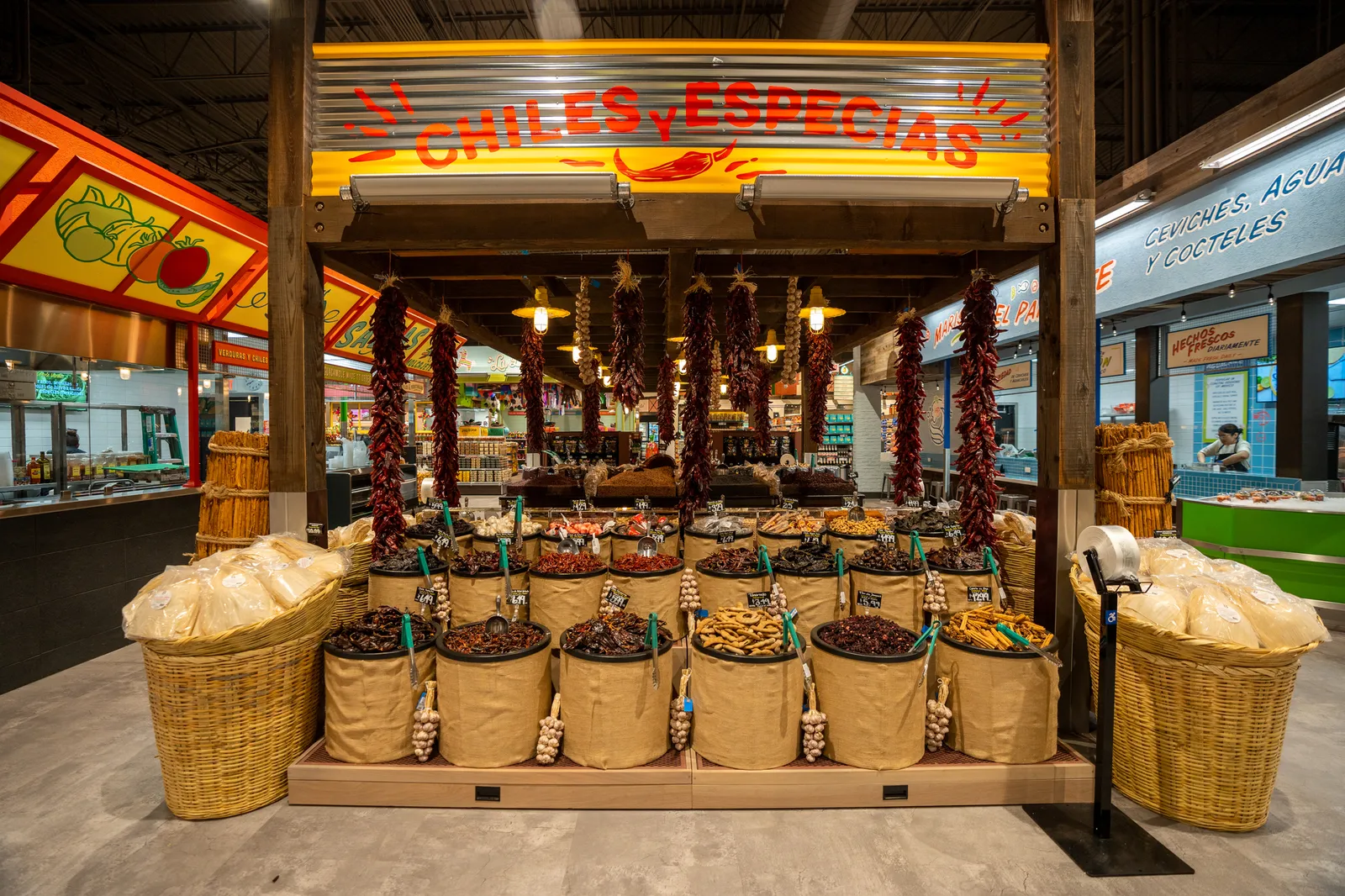
Celebrating a family legacy and Mexican culture
After a fire destroyed his shoe shop in Jalostotitlán in Jalisco, Mexico, Don Miguel moved to the United States and converted a liquor store into the first Northgate Market, which opened in Anaheim, California, in 1980. The grocery company’s name stems from the combination of the liquor store’s name — Northgate — with the family name.
The chain celebrated its 40th anniversary in 2020. Currently third-generation owned, Northgate has grown to 43 stores, including the newly opened location with the mercado concept.
Initially, the grocery chain focused on the Mexican consumer before broadening its target customer base to non-Mexican Latin and Hispanic shoppers, Kelley said.
By the time the chain started working with Shook Kelley about three years ago, however, its stores had come to look “[more] like a Ralph’s” as the González family sought to model a traditional American supermarket in order to overcome stereotypes surrounding Hispanic grocery stores, Kelley said.
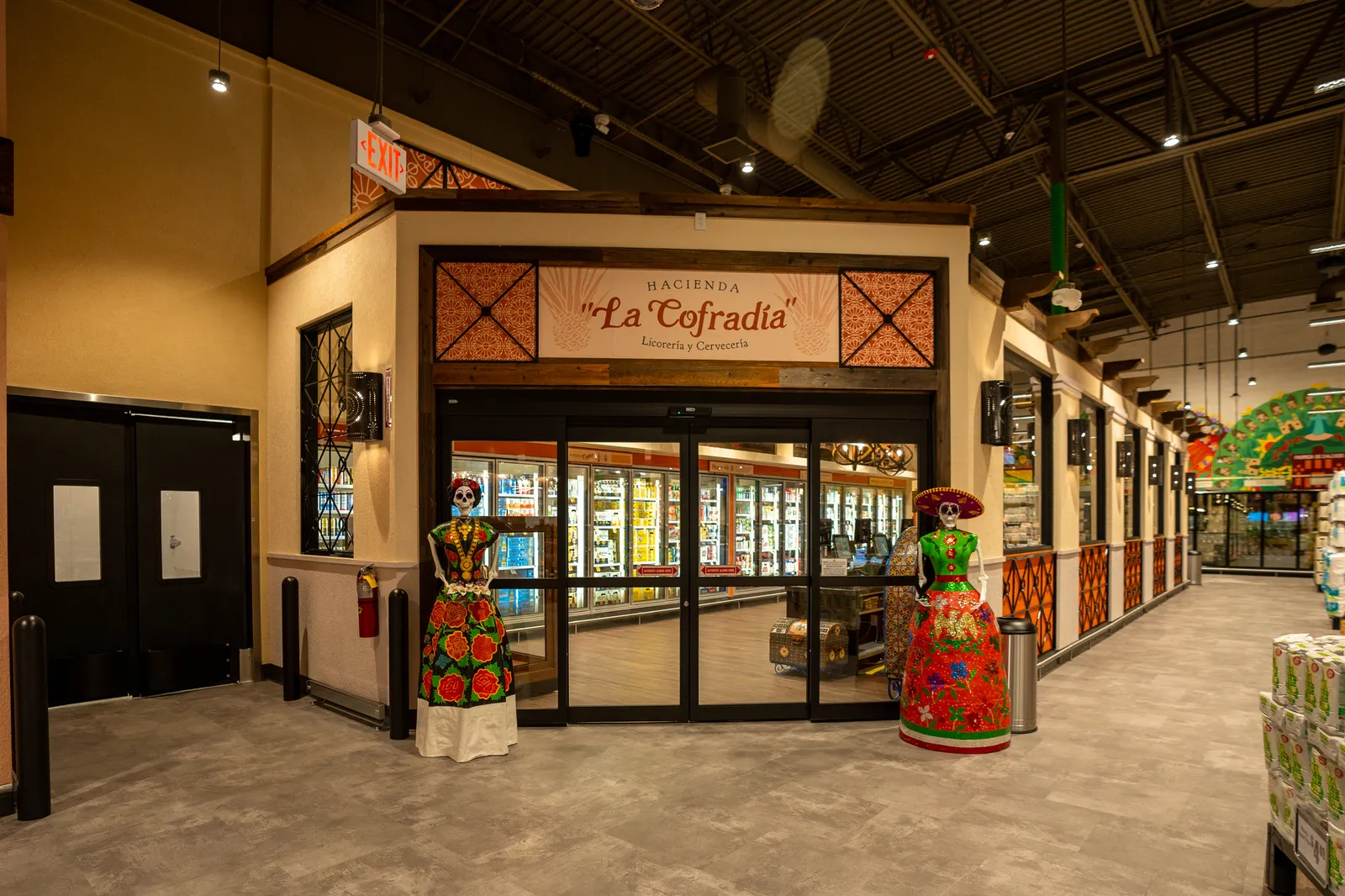
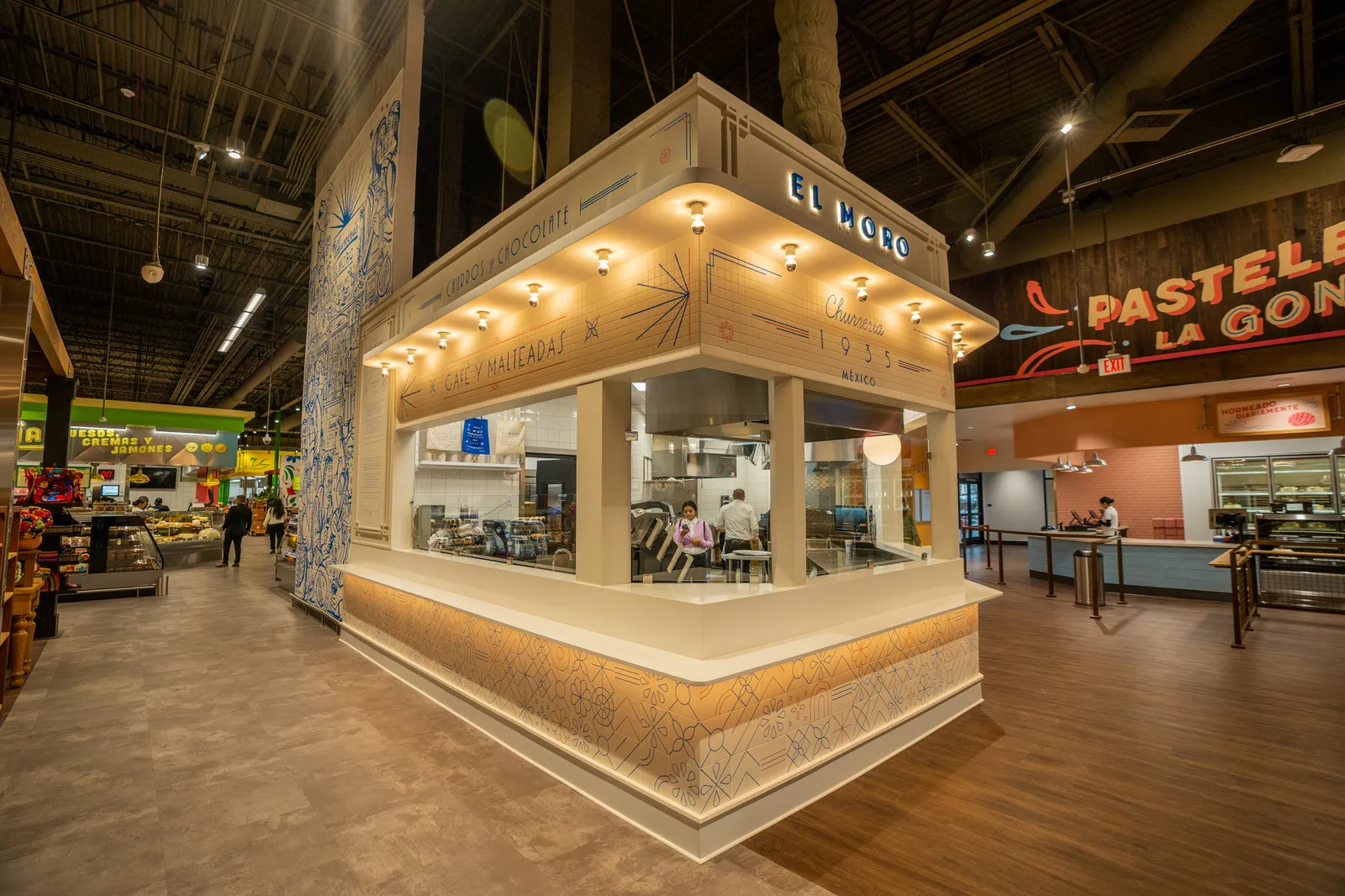
“They’re very aware that sometimes people look at Mexican food as not as high class or as high culinary and they don’t believe that and they don’t like that view,” Kelley said.
But Shook Kelley encouraged the chain to embrace its roots and roll out a new concept that serves up authentic Mexican cuisine as a differentiated approach and competitive advantage — leading to the creation of Mercado González, Kelley said. In Mexico, mercados serve as lively gathering spots that host numerous vendors.
“What would a real Mexican culture grocery store look like — the actual idea of a mercado?” was the driving question behind the mercado concept, Kelley said.
While the Los Angeles area has a large Hispanic and Latino population, Mercado González aims to cater to Mexican consumers as well as the broader population diversity in the area, Kelley said.
“I believe it will attract the non-Mexicans to this concept because of its authenticity, just as much as we all love to go to a genuine sushi house or a genuine Thai restaurant,” Kelley said about the newly opened store.
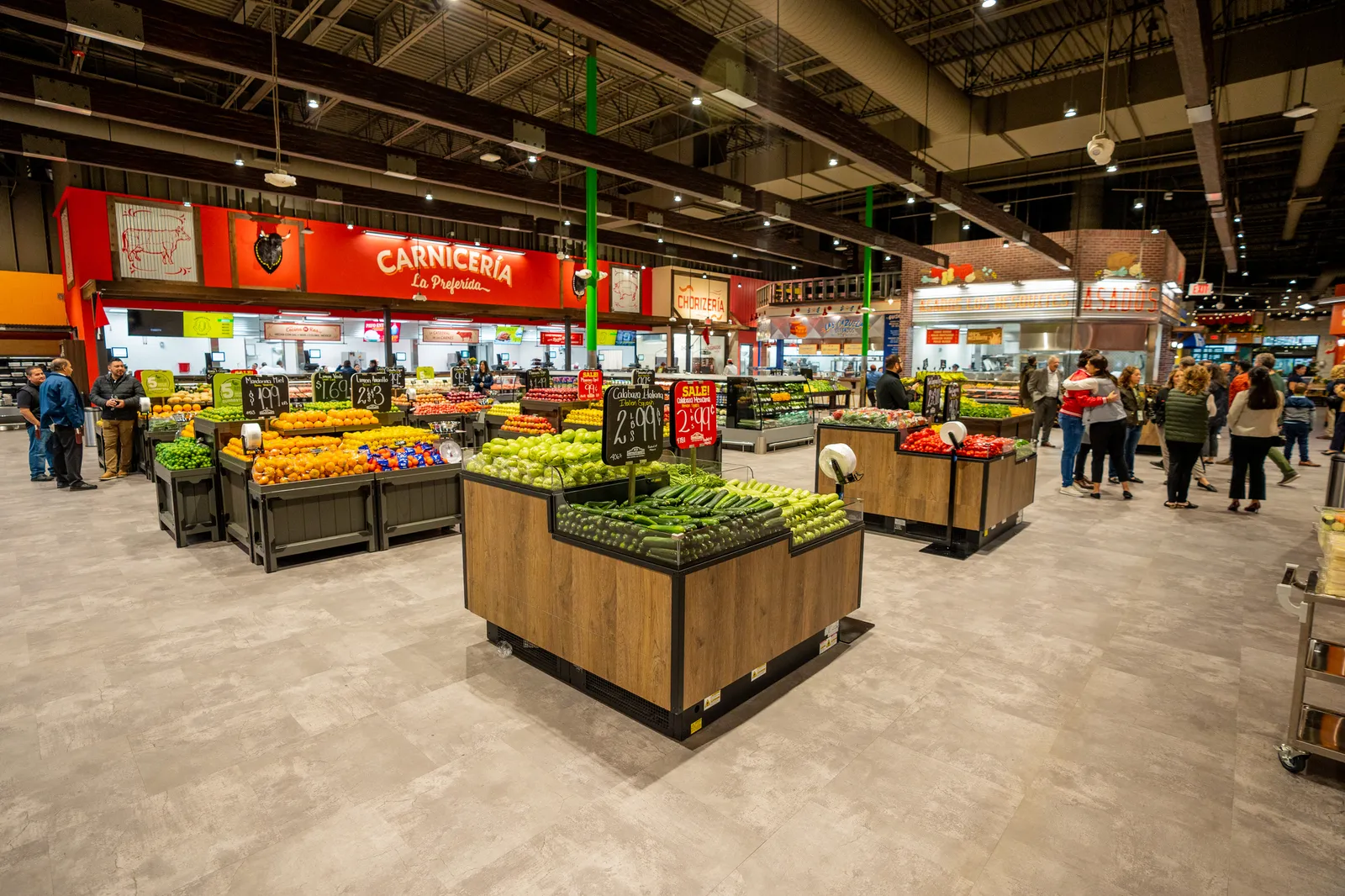
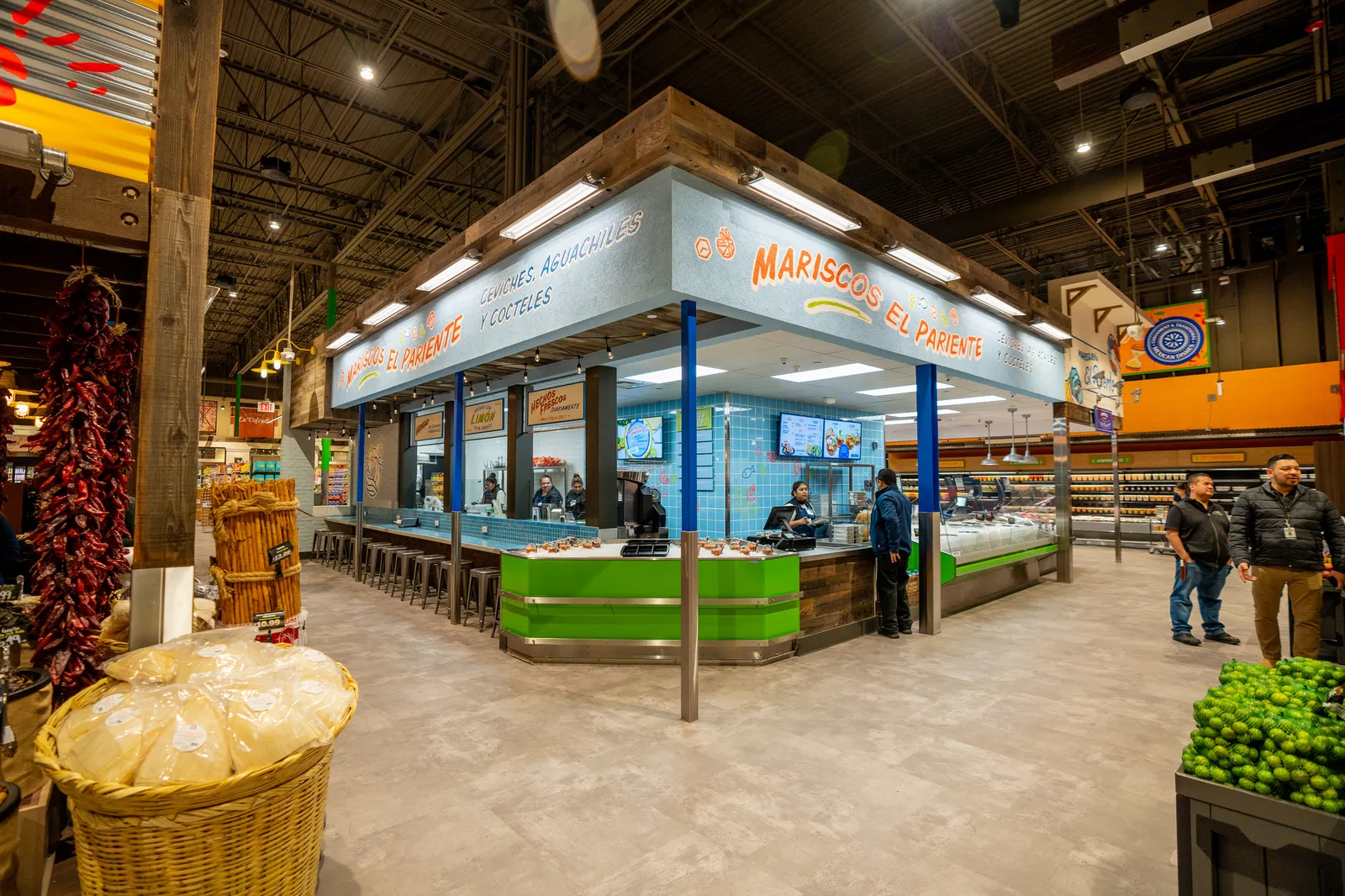
Cooking up authenticity
Inside Mercado González, shoppers can find more than two dozen puestos — food stalls — that serve up both dine-in and carry-out options.
“You can eat in a market but you can also take your food home,” Kelley said.
At the various puestos, customers can get different offerings such as tamales, tacos, aguachiles, ceviches, carnitas, fruit bowls and pizza. There’s even a Mexican candy store.
At Churrería El Moro, shoppers can get churros fried to order, while Chiva Torta is serving up carnitas, tacos and tostadas.
The traditional fresh foods departments of meat, seafood and produce have been transformed into the Carnicería La Preferída, Marisquería El Puerto and Cremería puestos.
Customers can also eat at Maizano, an upscale Mexican restaurant with sit-down dining costing roughly $60 per person, Kelley said. The restaurant focuses on alta cocina — Mexican haute cuisine — with plates from the Mexican states of Yucatán, Puebla and Oaxaca, Eater LA noted.
Platos fuertes — main courses — include dishes like octopus with peanut red mole and Mexican squash, carne asada, and the catch of the day.
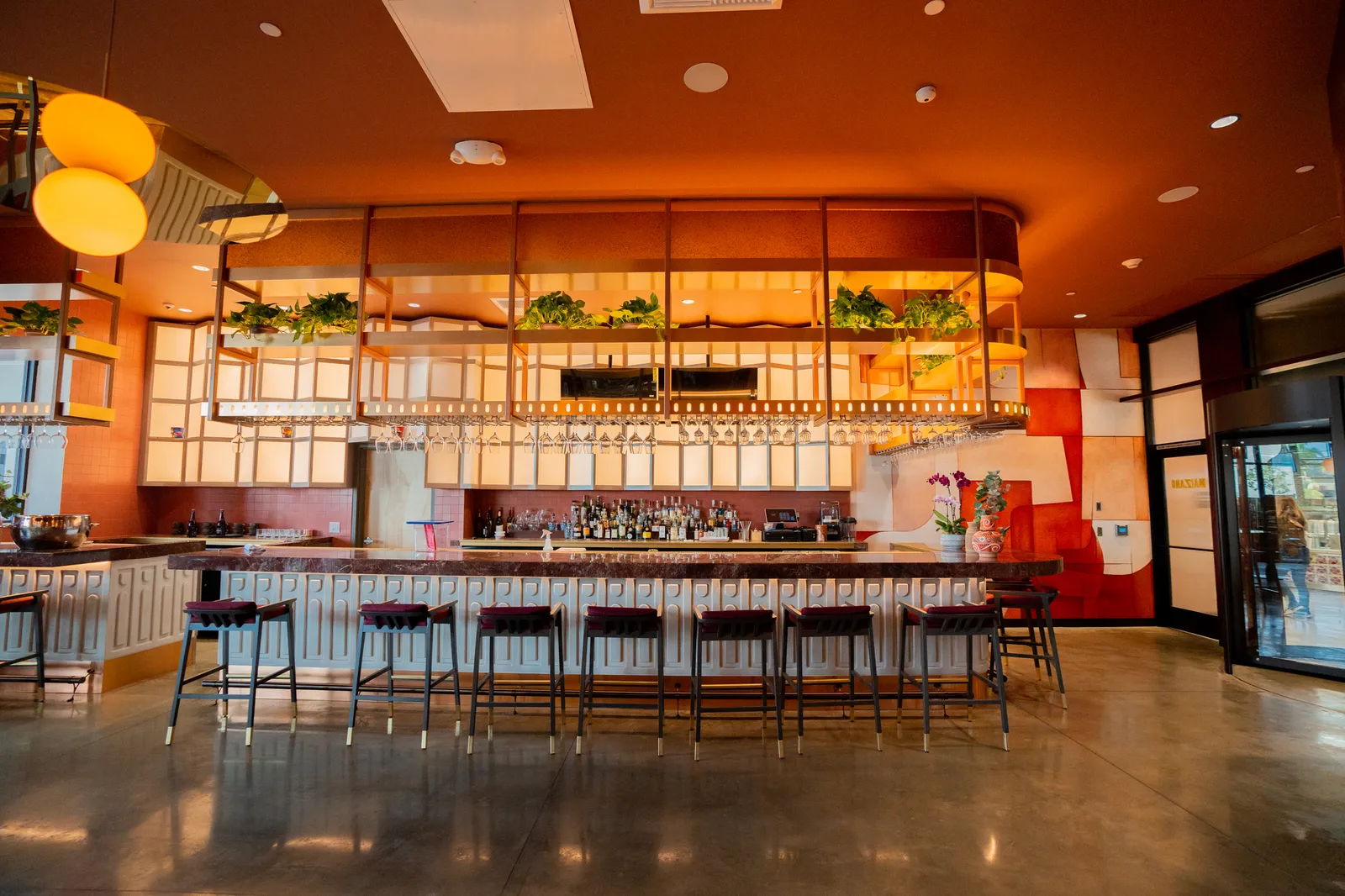
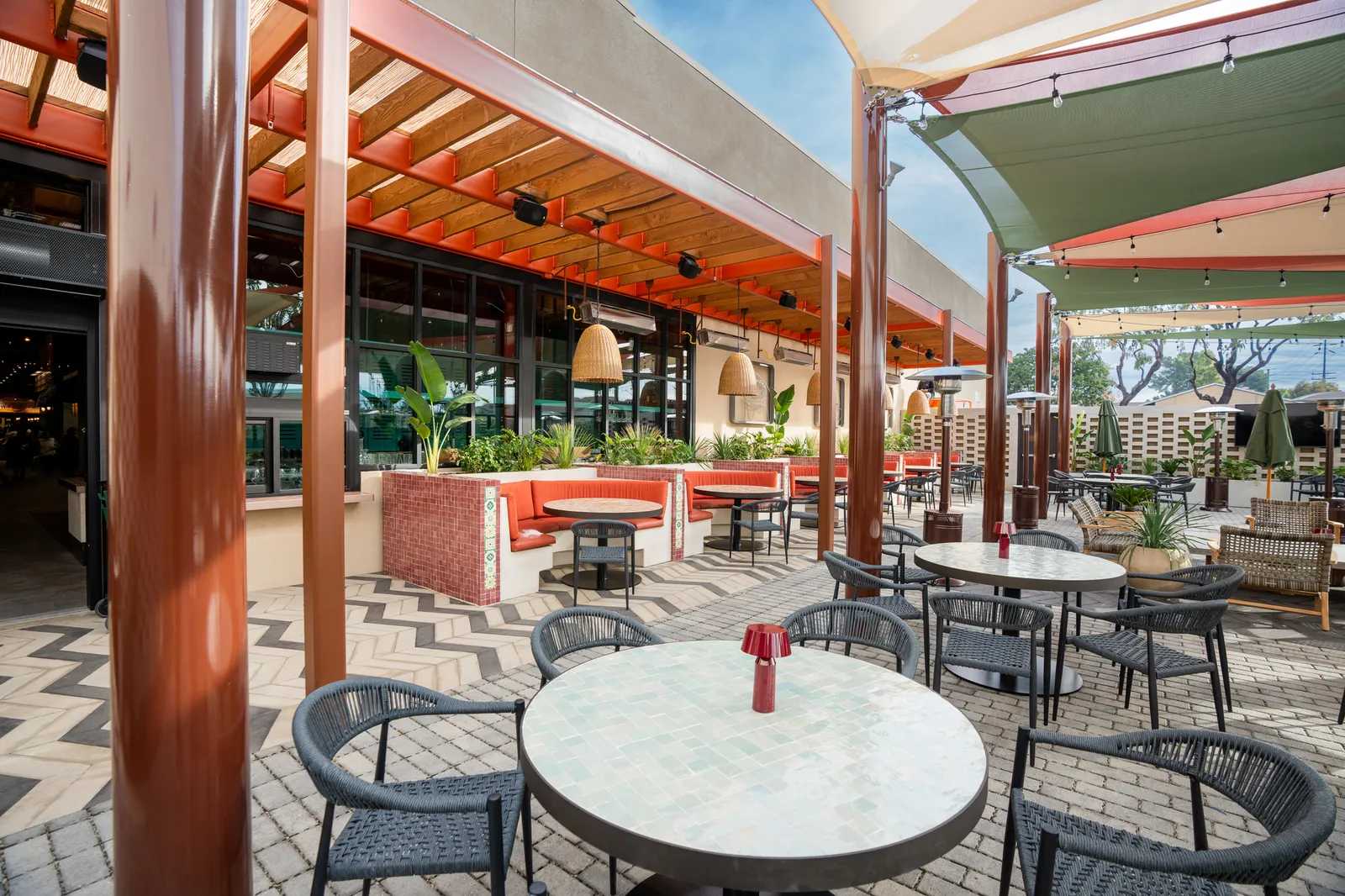
While Shook Kelley studied traditional Mexican mercados for the design elements, Northgate Market tapped its direct sourcing pipeline to Mexico as well as local Los Angeles businesses.
Mexican culture has “a lot of beliefs about what food does for you, how it should be served [and] when it should be eaten that’s kind of lacking in American food,” Kelley said.
To further build its reputation as an authentic food experience, Mercado González also includes community kitchens that people can use as test or incubator kitchens to help build their food trucks or food businesses, Kelley said.
“It is going to be one of the hottest concepts in the United States … It gets rid of the traditional aisles and rows and perimeter and builds a whole different experience that you cannot get online,” Kelley said.
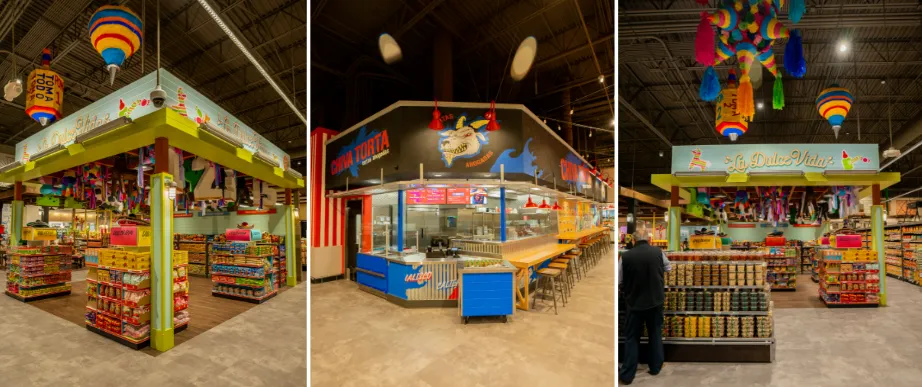
Bucking industry norms
Along with its focus on celebrating authentic Mexican cuisine, Mercado González is also standing out from other grocery stores by breaking long-held industry guidelines and standards.
Straying from the simplified design approach at most grocery stores, the new location is bursting with visual panache, Kelley said.
For example, while most stores use two or three fonts in their signage, Mercado González uses more than 80, he said, adding that there are hundreds of different types of signs and dozens of decorative lamp fixtures.
The store uses 210 paint colors, features 115 custom illustrations and nearly 50 types of tiles and more. The 11 murals do more than add an artistic touch — they also tell symbolic and iconic stories relaying Mexican rituals and traditions based on food, Kelley said.
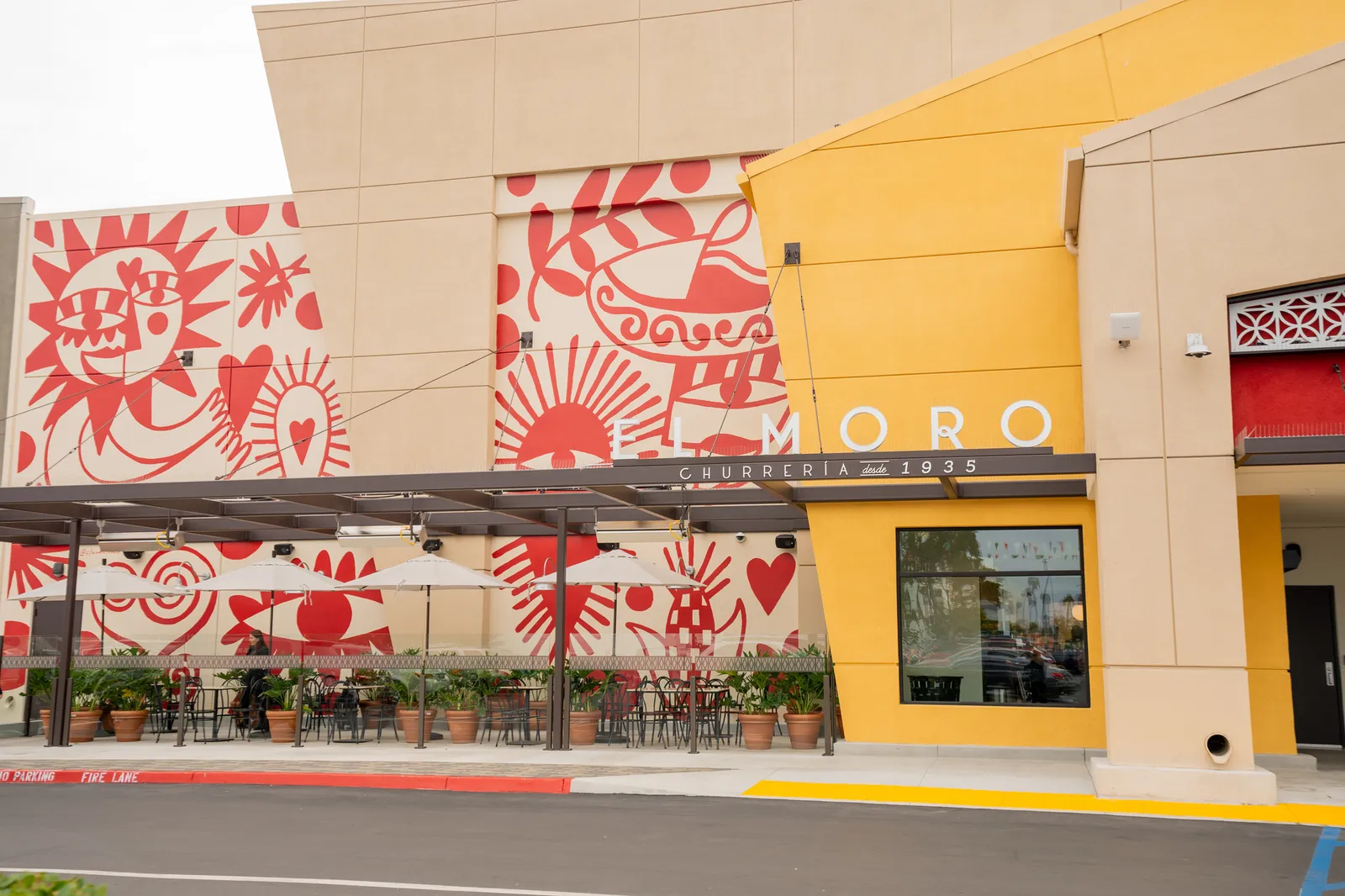
“It’s the complete opposite of what the industry would [normally] do,” Kelley said.
While Kelley has heard comparisons of the new store to other foodservice-focused players like Wegmans and Eataly, he likened Mercado González more to a farmers market with its authenticity of operators and emphasis on everyday rather than special occasion.
“It’s unlike anything I think the grocery industry has seen,” Kelley said.


